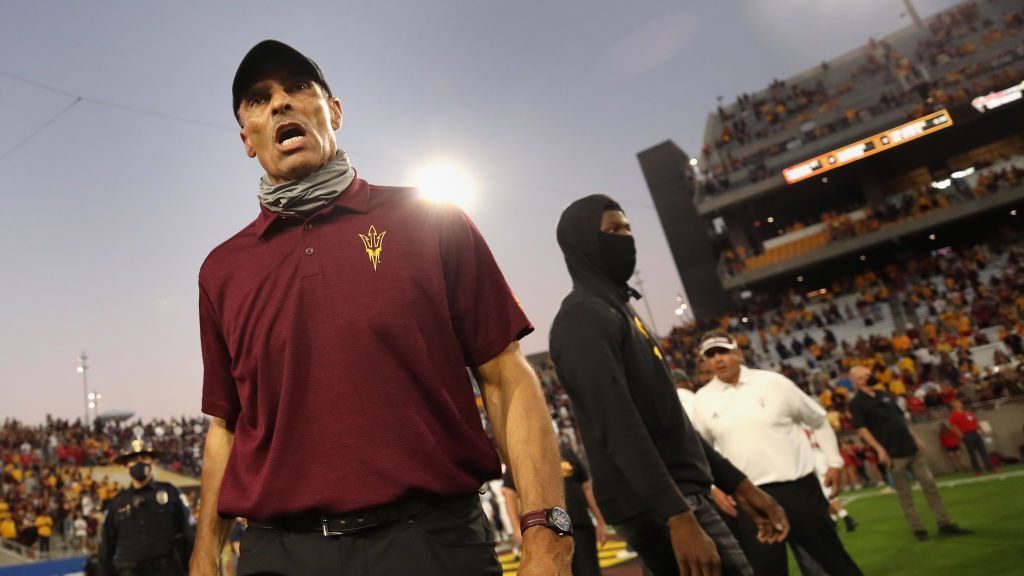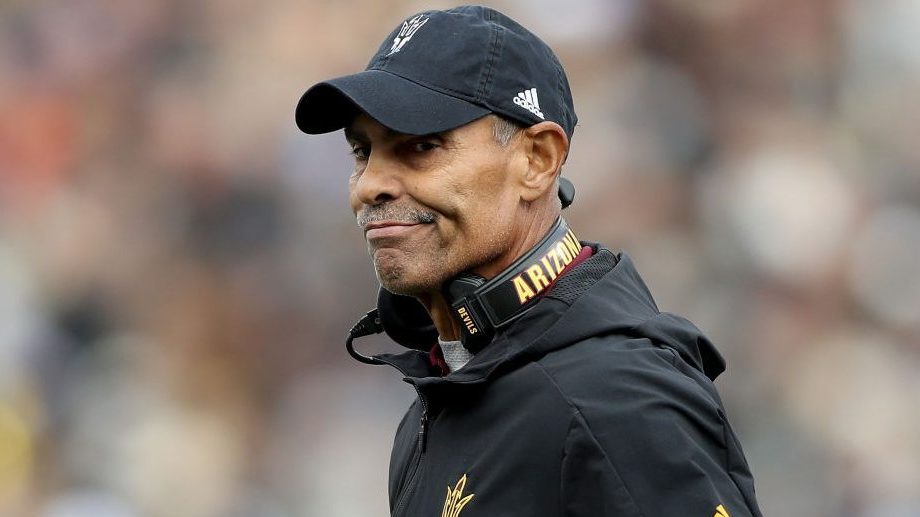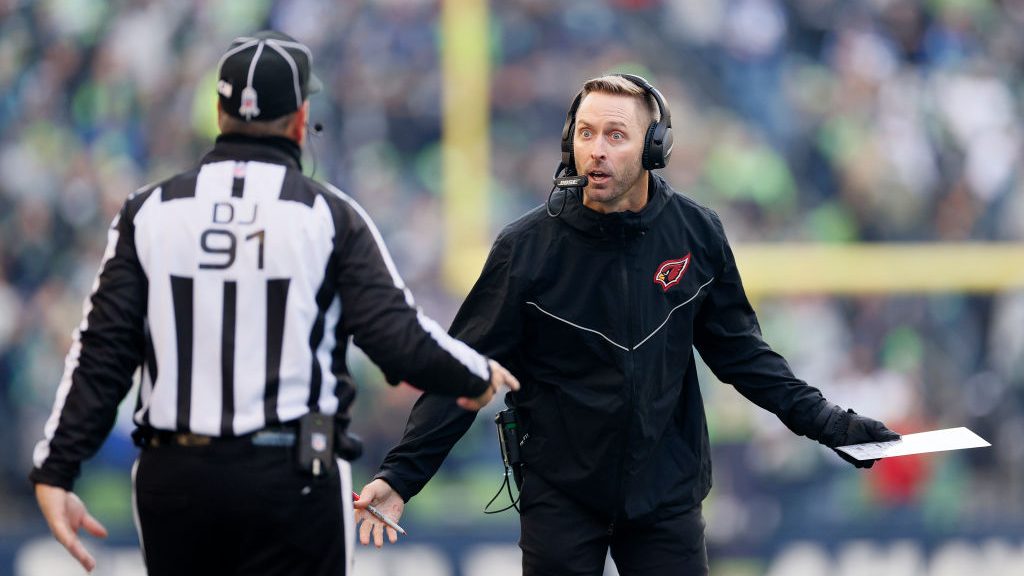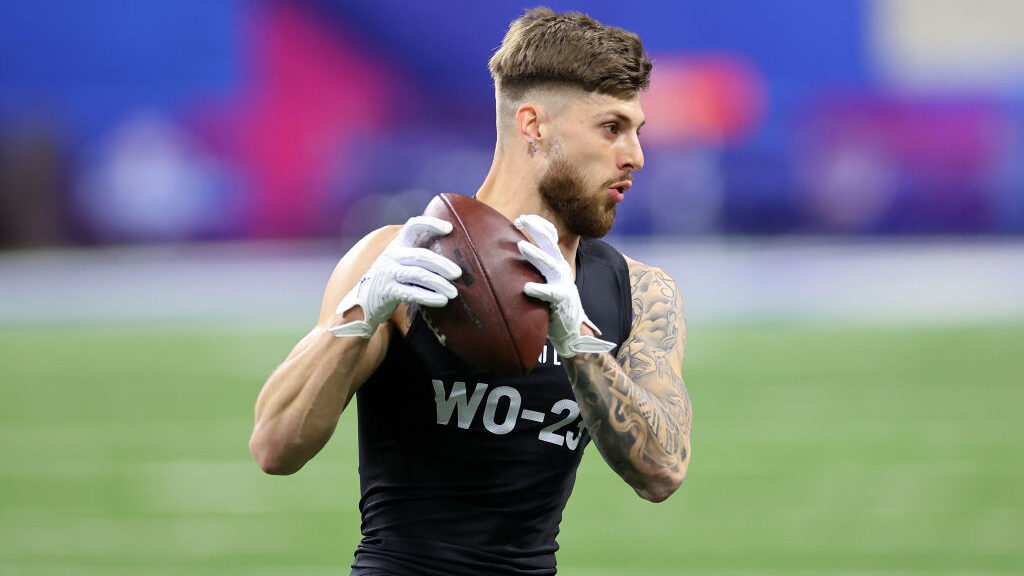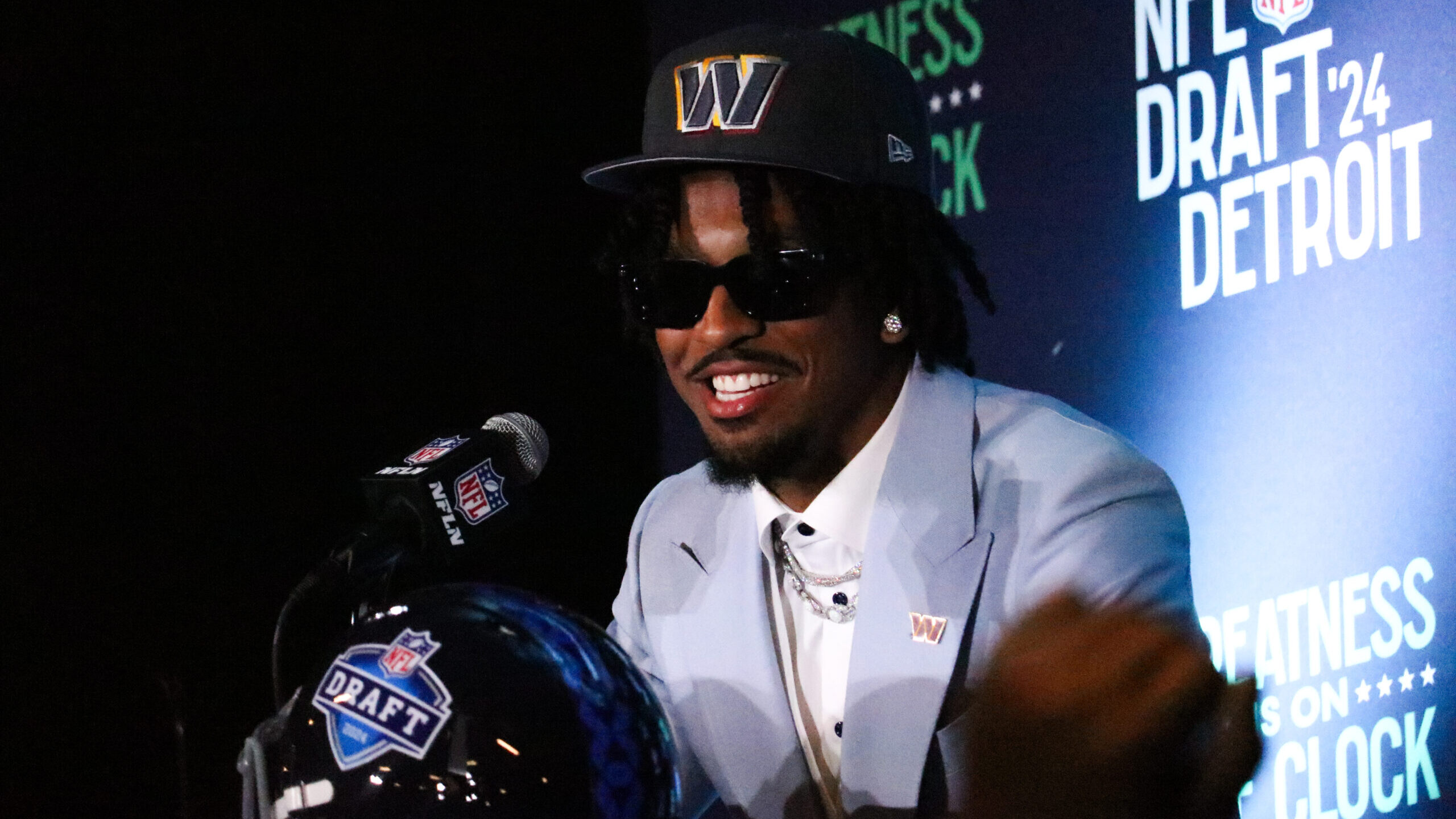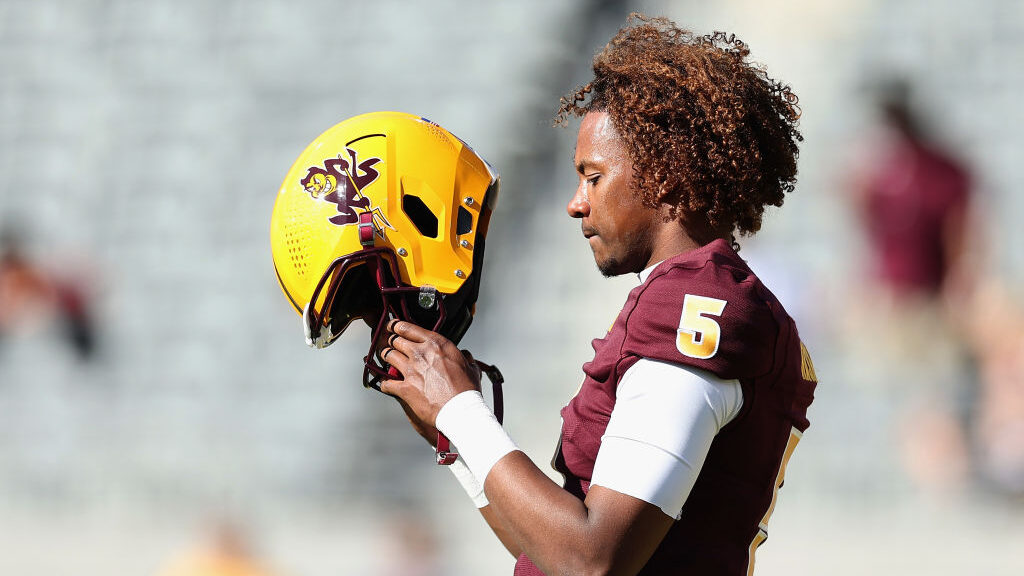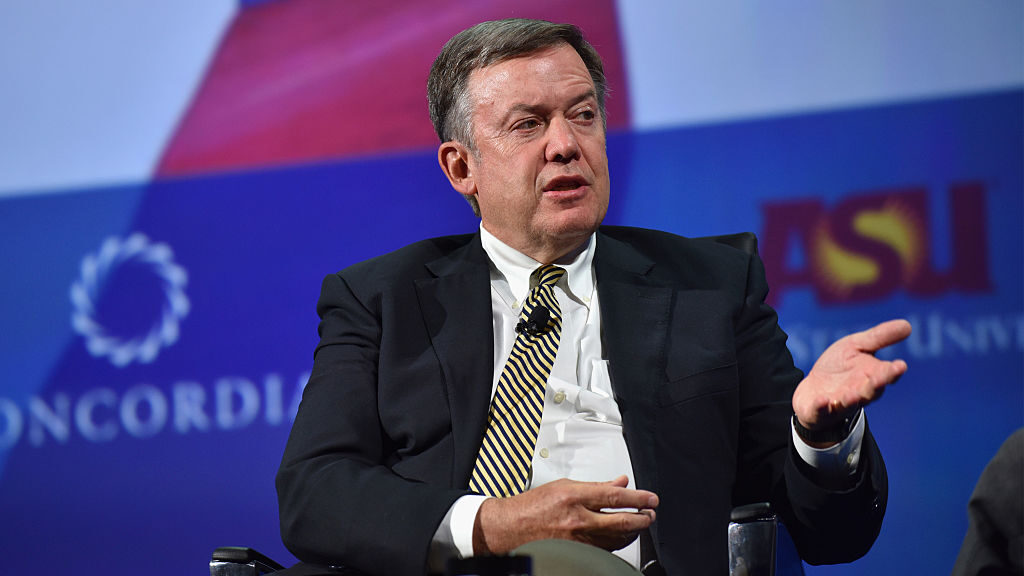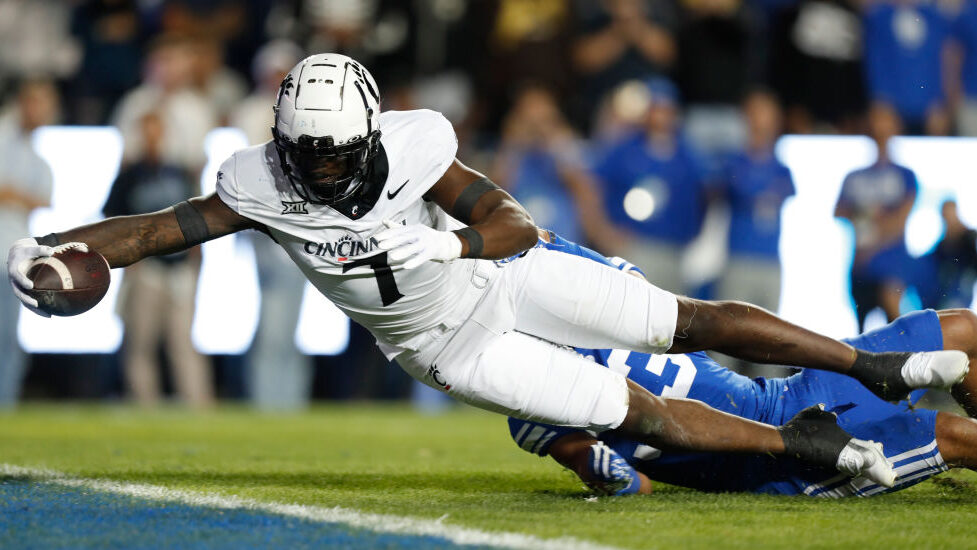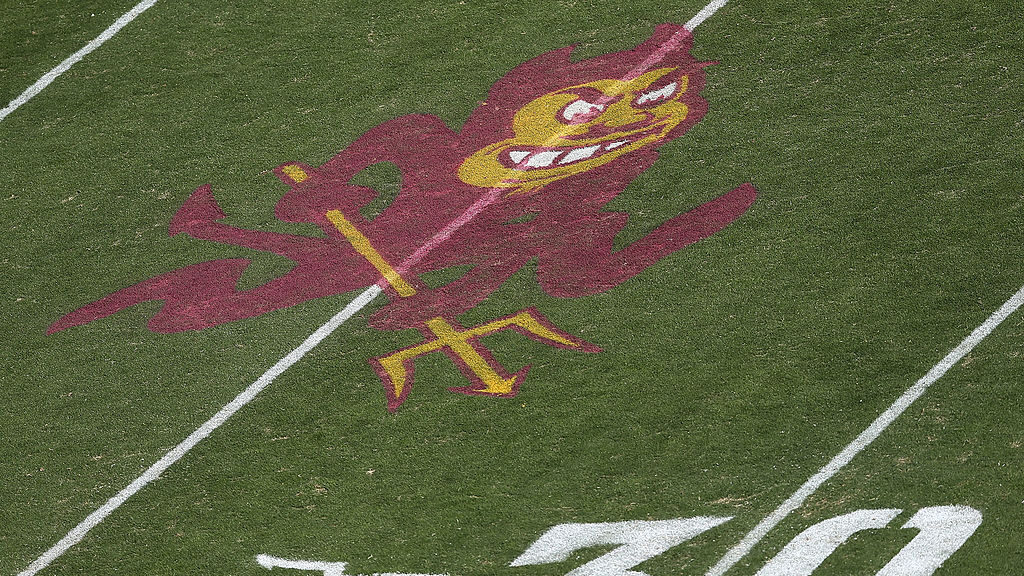ASU’s Crow takes blame off Herm Edwards: ‘Not part of’ alleged violations
Feb 23, 2022, 9:10 AM | Updated: 2:02 pm
Arizona State University president Michael Crow shifted responsibility away from Sun Devils head football coach Herm Edwards on Wednesday and placed blame on former football staffers for the ongoing NCAA investigation into the program’s recruiting practices.
Crow, who spoke with Arizona Sports’ Bickley & Marotta as part of Newsmakers Week, said Edwards “did not ask” his five departed assistants to break recruiting rules — the allegations involve ASU allowing football recruits to visit campus and meet with staff during a dead period caused by the pandemic.
“In all of these things where you have people who decide not to play by the rules, those people are gone,” Crow said when asked why Edwards is still leading the football team. “Now we’re looking at what went wrong and why that happened, so we’re still in the thick of that. Coach Edwards has done an outstanding job of upgrading our overall program. We got this (group) of people who decided to not play by the rules relative to recruiting.
“So we’ll be looking to how we make improvements so forth and so on, but Coach Edwards is responsible for all the actions of all of his people, but these are things he did not ask them to do. These are not things he was a part of. We’re looking at everything possible. He’s brought a lot of talent, energy and creativity. Now we’re dealing with people who couldn’t play by the rules and now they’re gone.”
The original dossier that sparked the NCAA inquiry reportedly included a photo of Edwards meeting a recruit in the team’s weight room during the dead period, and SunDevilSource.com reported that Edwards met with high school prospects both on campus and at a Paradise Valley home rented to host recruits.
Crow estimated that a resolution to the investigation could still be 10 months to a year away.
ASU vice president for university athletics Ray Anderson later on Wednesday offered a less detailed comment on Edwards’ status.
“You got an NCAA investigation ongoing so we can’t comment, as you know, publicly about it. To give you an assessment would be doing that,” he told Bickley & Marotta after his superior absolved Edwards of wrongdoing. “The NCAA process controls (the investigation), we do not control it. As you know, that process can be glacial.
“We just got to be patient as required. So we’re going to do that before we make any final determinations about our program, who leads it going into the long-term future. … I certainly personally don’t believe any rush to judgment is justified here in this case at ASU and will remain adamant about that.”
Arizona State this offseason has lost five assistants from Edwards’ 2021 staff.
Defensive coordinator Antonio Pierce, who also held the associate head coach and recruiting coordinator titles, resigned in the past month, following offensive coordinator Zak Hill out the door. Three assistants who spent the entire regular season on administrative leave also either resigned or were fired: defensive backs coach Chris Hawkins, receivers coach Prentice Gill and tight ends coach Adam Breneman.
Joining Bickley & Marotta on Tuesday, Edwards defended the premise that he put too much trust in his former assistants and had too little insight into the interworkings of his own program.
“I feel this way, that when you delegate responsibility, you have to trust people,” Edwards said. “I live in a world like that, I grew up that way. I just think — I don’t micromanage people. I understand what’s going on for the most part, but at the end of the day, football’s about trust, by the way. This game’s built on trust.”
Crow on Wednesday partially blamed the football program’s self-titled “pro model” for allowing the former coaches to break from regulation under Edwards’ watch.
“I think another consequence of the pro model is some individuals who weren’t as focused on the college rules as they should have been,” Crow said, adding their model is still in the works of operating at its peak.
“Happy with the progress, not happy with the stumble here.”
Anderson joined Crow in pointing to new NCAA transfer rules and name, image and likeness regulations for changing how their model operates. Anderson called ASU’s success under Edwards, including a 25-18 record since 2018, “progress.”
The vice president for university athletics said that the presumption that he and Crow promised to build a consistent Pac-12 contender within four years when they hired Edwards before the 2018 season is inaccurate.
“Anyone who said we wanted to say we were making a promise the next two three or four years, quite frankly, that’s an interpretation I think is not correct,” Anderson said. “Do we have aspirations to build to that? Absolutely, yes we do. … It hasn’t been done before and it’s not going to miraculously occur in two, three, four years.
“I guess the only thing I would have said is it hasn’t been done here, very frankly, ever, and it’s going to take some time to get there. Don’t impose some timeline on us that hasn’t existed for prior programs.”


